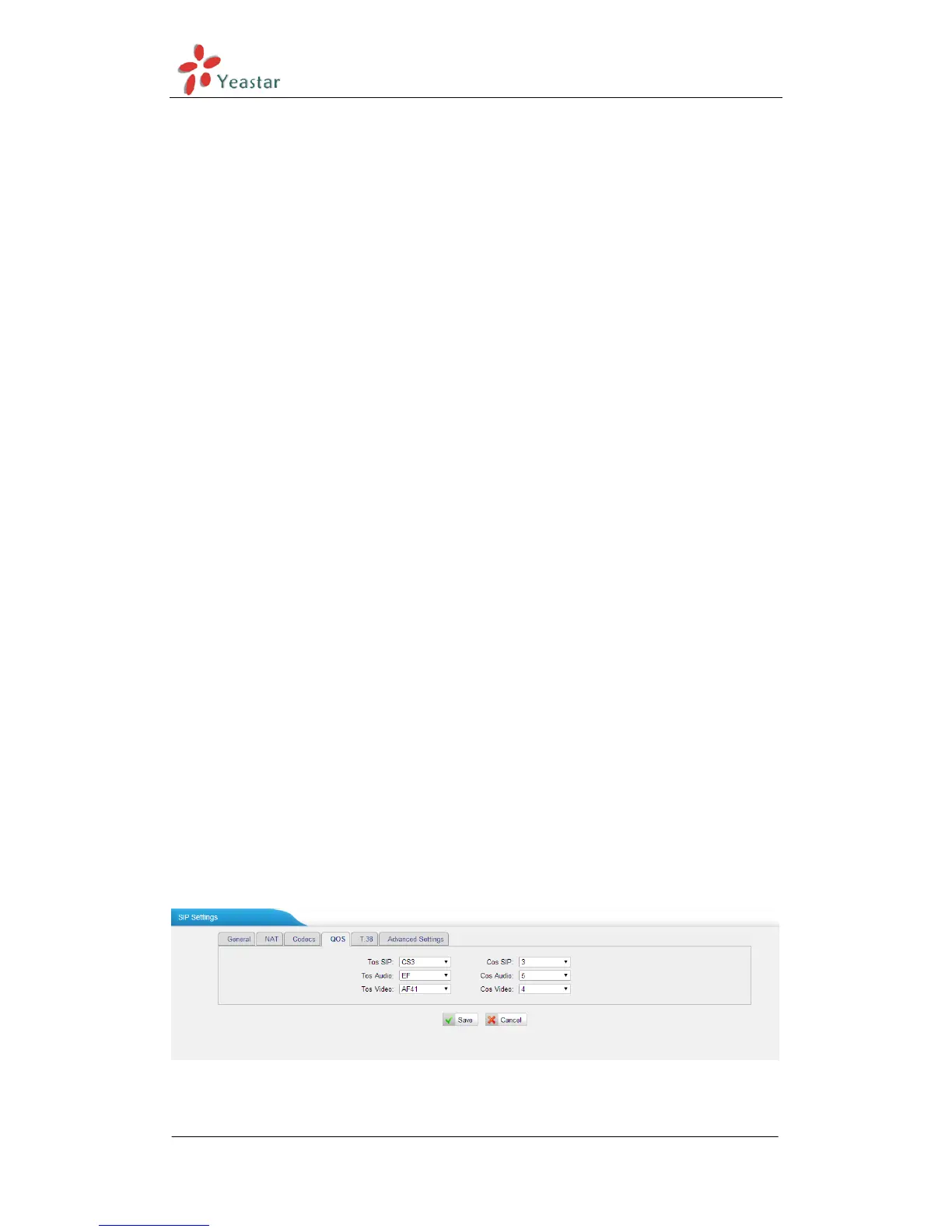MyPBX Standard V6/V7 Administrator's Guide
www.yeastar.com Page 121
Figure 6-63 SIP Settings—Codecs
A codec is a compression or decompression algorithm used in the transmission
of voice packets over a network or the Internet.
u-law: A PSTN standard codec, used in North America, which provides very
good voice quality and consumes 64kbit/s in each direction (receiving and
transmitting) of a VoIP call.
a-law: A PSTN standard codec, used outside of North America, which provides
very good voice quality and consumes 64kbit/s in each direction (receiving and
transmitting) of a VoIP call.
GSM: A wireless standard codec, used worldwide, that provides adequate voice
quality and consumes 13.3kbit/s in each direction (receiving and transmitting)
of a VoIP call. GSM is supported by many VoIP phones.
SPEEX: Speex is an Open Source/Free Software patent-free audio compression
format designed for speech. The Speex Project aims to lower the barrier of entry
for voice applications by providing a free alternative to expensive proprietary
speech codecs. Moreover, Speex is well-adapted to Internet applications and
provides useful features that are not present in most other codecs.
G.722:G.722 is a wideband speech coding algorithms which supports the bit
rate of 64, 56 and 48kbps wideband. It‘s a broadband voice encoding of G
series.
G.726: A PSTN codec, used worldwide, that provides good voice quality and
consumes 32kbit/s in each direction (receiving and transmitting) of a VoIP call.
G.726 is supported by some VoIP phones.
ADPCM, G.729A, H261, H263, H263p, H264, MPEG4.
Note: If you would like to use G.729, please enter your license.
4) QoS
Figure 6-64 SIP Settings—QoS

